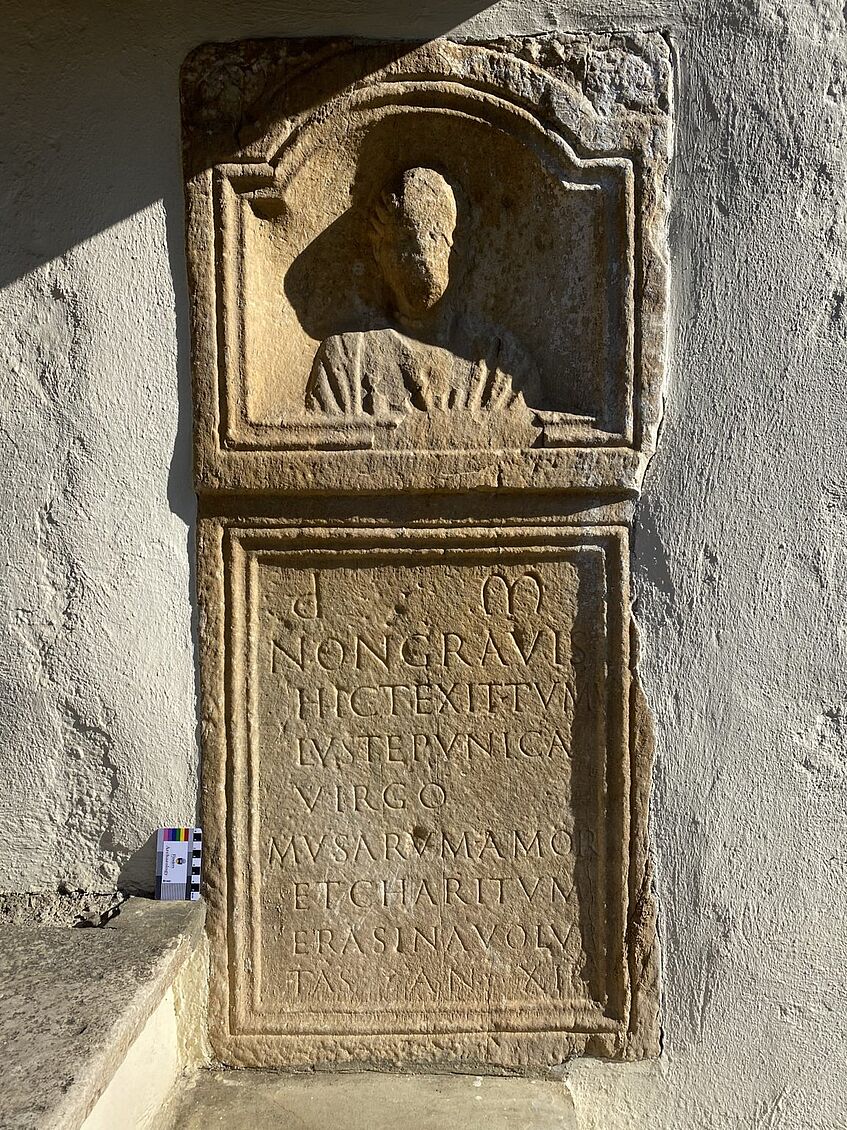Cultural History and Antiquities
The examination of the intellectual-cultural life of ancient Mediterranean societies as well as territorially and chronologically adjacent areas of Europe, the Middle East and North Africa represents a key component of our research. Here, we equally include cultures that have shaped the broader understanding of history – the Greeks, Romans and Etruscans – and peoples or societies that came into contact with these cultures – willingly or unwillingly. In this context, we strive to comprehend the structures, mechanisms and realities of ancient societies and their cultural forms of production and expression, not limited to leaders and elites, in a complex manner.
A particular focus of our department’s research in Antiquity and Cultural History lies in the field of poetry and vocal performance culture in the Roman Empire. Especially the poetic inscriptions from the Roman period, the corpus of the so-called Carmina Epigraphica, are central in our activities.
Thousands of verse inscriptions, written in Latin as well as Greek (and at times multilingual), do not only document one thousand years of cultural developments in the Roman Empire in all its geographical parts: At the same time, they offer fascinating insights into values, concepts of afterlife, emotions, concerns and needs as well as ties to locations and the mobility of ethnic and social groups in urban and rural contexts, in centres and in the provinces, of slaves and local or empire-wide elites, far from (yet not independent from) the canonised aristocratic literary tradition.

